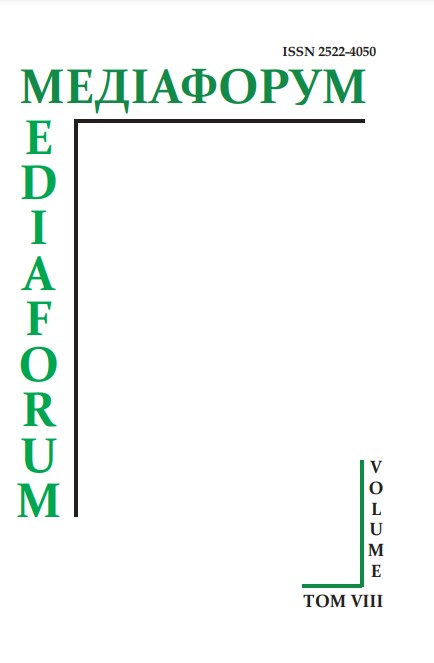Benefits of HyFlex learning in creating a positive students’ experience
DOI:
https://doi.org/10.31861/mediaforum.2020.8.165-172Keywords:
HyFlex teaching/learning, students, Covid-19, flexibility, adaptability, positive experience, hybrid online courseAbstract
During the COVID-19 pandemic HyFlex teaching/learning has increasingly grown into a crucial feature of education. My strong conviction is the integration of information technology in education will be further accelerated and online education has eventually become an integral component of the present-day education. Despite the drawbacks, there are some obvious benefits to leveraging a HyFlex course model. It allows students more flexibility than ever before, meaning they can adjust and adapt as needed to accommodate their schedules (in our case, being in Ukraine or abroad). It also gives students access to a greater breadth of learning materials than they would otherwise receive. It is worth mentioning that after Covid-19 the world and education has changed dramatically, with the distinctive rise of e-learning, whereby teaching is undertaken remotely and on digital platforms. This resulted in the largest “online movement” in the history of education. Importantly, research suggests that online learning has been shown to increase retention of information and less time-consuming, means the changes Coronavirus have caused will be here to stay.
Downloads
References
Havlin, T. (SoSe 2020). Jean-Monnet-Seminar – European Integration: Conflicts, Institutions, Policies, and Cohesion. Available at https://moodle.uni-siegen.de/course/view.php?id=21358
Jean Monnet Open Online Course of European Integration: Strategic Communication[website], 2018-19. Available at https://www.eurosci.net/universities/yuriy-fedkovych-chernivtsi-national-university
Klimovaa Blanka Frydrychova &Kacetl Jaroslav (2015). “Hybrid learning and its current role in the teaching of foreign languages”. – Procedia - Social and Behavioral Sciences, 182 (2015) 477 – 481. Retrieved from http://www.sciencedirect.com (Accessed June 20, 2020)
Mahmoodi-Shahrebabaki M. (2015). “On the Understated and Avant-garde Language Teaching Methods and Theories”. Int. J. Appl. Ling. Stud., 4(1): 17-23)
Maltese, R. (2020). “5 Tips for Delivering Better Hyflex Teaching Classes”. Retrieved from 5 Tips for Delivering Better Hyflex Teaching Classes | Kaltura (Accessed November 12, 2020)
O’Keeffe, A. (2020). “Instead of rote learning useless facts, children should be taught wellbeing”. Retrieved from https://www.theguardian.com/commentisfree/2020/mar/02/instead-rote-learning-useless-factschildren-need-taught-wellbeing (Accessed May, 20, 2020)














